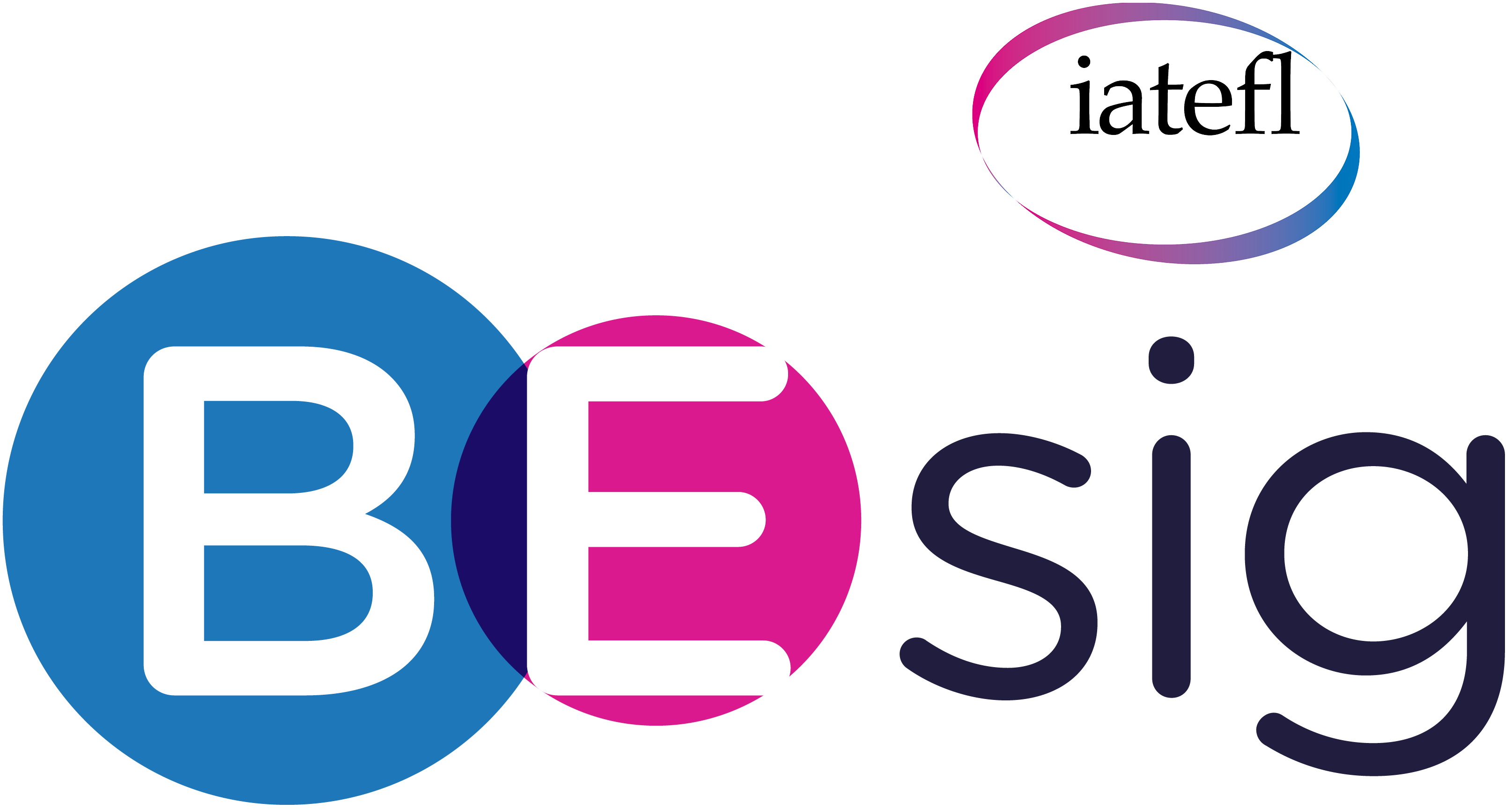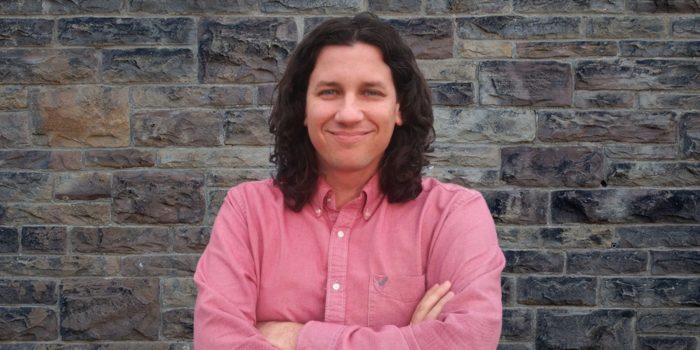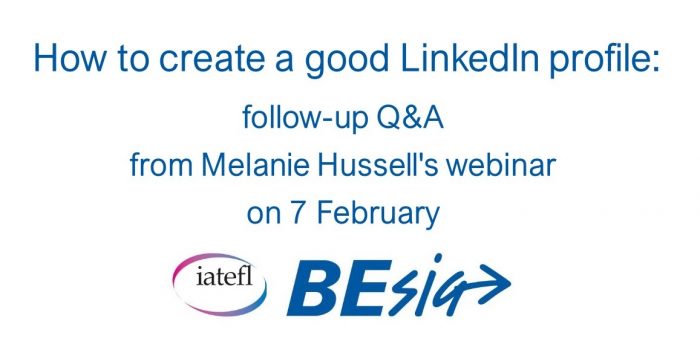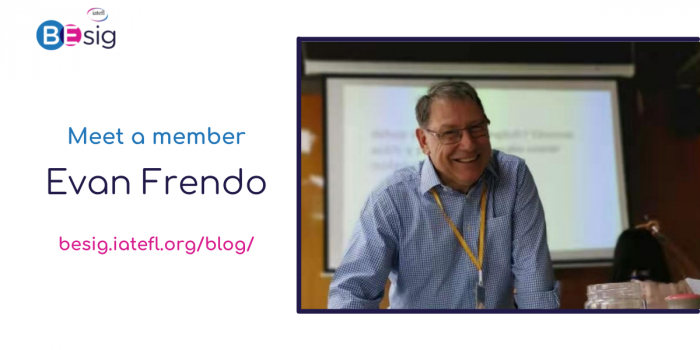
This interview marks the golden jubilee of the Meet a Member series. These interviews haves taken us across countries, fields of expertise, disciplines and cultures. Since May 2019, they have shown us the heart and soul of 49 business English teaching professionals, and this interview brings us to number 50. By popular demand, IATEFL BESIG’s former joint coordinator, Evan Frendo, is our 50th interviewee! Many of us have had contact with Evan: he is the friendly face ready to greet you at a conference; the person to turn to for advice; the man who can talk about business English until the cows come home. We all know him well and have our “Evan stories”, so I hope this interview gives you some more insights into him!
Bio
Evan Frendo has been involved in business English teaching since 1993. He is based in Berlin, Germany, but his work, at least before COVID, took him to many places in Europe and Asia. Nowadays he divides his time between training, writing and consulting, all of it online.
What do you regard as the biggest achievement of the business English community in the past 20 years and what has been the biggest failure?
Not sure if this is an achievement, but I think the fact that trainers can now easily interact via social media with other trainers from all over the world, has made the BE world (not just IATEFL BESIG) much more interconnected. This means that professional expertise and experience is being shared in ways that were unthinkable even a few years ago.
Biggest failure? The sharing of expertise and experience I just mentioned does not include academic research, which is still largely hidden behind paywalls. The problem here is that there is not only a failure of getting research into practice, but also of getting practice into research. Most published research comes from people in the academic community, and largely ignores the thousands of practitioners working in BE. Those practitioners, denied access and representation, largely ignore the academic research. A classic silo mentality which helps no-one.
You've been in IATEFL BESIG for almost 30 years, what is the most significant change you've seen? And what are some things that have remained constant?
I wrote a lot about my thoughts on BESIG in a blog post https://besig.iatefl.org/some_thoughts_by_evan_frendo/ a couple of years ago, including what has changed and what hasn’t (Editor’s note: which is well worth a read). Since I wrote that post, however, there has been one other significant change - the policy for online events. The decision to use Zoom Webinars rather than Zoom Meetings for the monthly webinars gives these events a very top-down feel, unidirectional rather than collaborative, which for me is a change in how IATEFL BESIG operates. An important benefit of membership has always been the networking and interaction with colleagues, and this is clearly difficult when you don’t even know who is in the room.
BESIG note: The change in BESIG`s webinars has indeed changed the feel of the events. This is due to several factors: 1) IATEFL had changed platforms from Adobe to Zoom Webinars, 2) Zoom Webinars platform allows us to have over 100 viewers at a time, which we need, 3) If we were to upgrade our Zoom Meetings room (with its chat feature) to allow for more viewers, it would cost an additional 240 GBP per year forcing us to charge a fee for webinars, something we do not want to do for our members and non-members. Rob & Maria
Can you share some memorable moments from your time on the IATEFL BESIG committee and from when you were IATEFL secretary (2004-2005)?
I think my most memorable moment as IATEFL BESIG coordinator was helping to organize our conference in Singapore in 2003. This was the first and only time IATEFL BESIG has had an event outside Europe, which made it extra special.
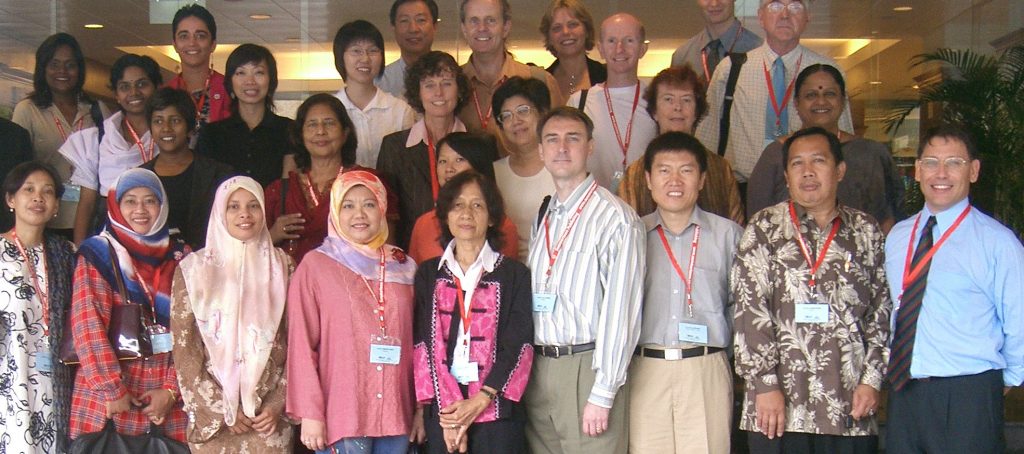
As IATEFL secretary I was privileged to work with Peter Grundy, who was IATEFL president at the time. For those who don’t know Peter, he is particularly well known in the field of pragmatics. I happened to be doing my Master’s Degree at the time, and I asked him to sign a textbook we were using, and which he had written. He asked me what I wanted him to write, and I suggested “Hope it comes in useful, or something.” You can see what he wrote on the photo. It remains my favourite inscription.
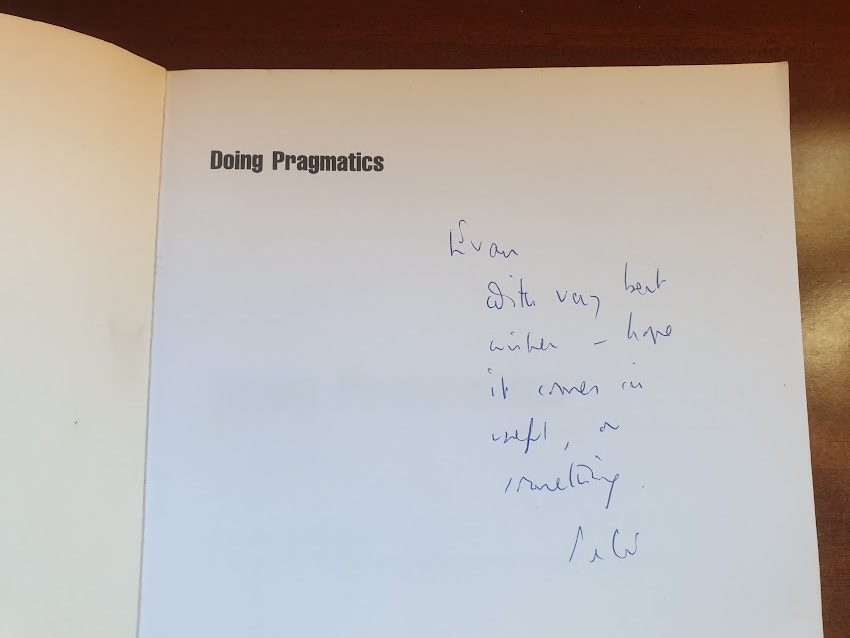
Looking back, what has been your greatest achievement? What would you have done differently?
I used to say that it was the publication of How to Teach Business English, a book I wrote for Pearson almost twenty years ago. Nowadays, however, I am not so sure. Perhaps a bigger (or more significant?) achievement was making the break from teaching in language schools to fulltime in-company training. This opened up a completely different perspective on what language training in a business context actually means.
What would I have done differently? Perhaps I could have tried to interact more with the L&D (Learning&Development) community, especially in Asia. It is easy to get caught up in the minutia of everyday life that seem to worry people in ELT, like whether I call myself a coach or a trainer or a teacher, or the role of grammar, and forget the big picture: the client’s perspective.
Where's business English training going as an industry?
I think the picture is very mixed. Technology is promising great things, as it always has, and there are plenty of self-appointed experts who are doing the same. Everyone seems to have the answers, if only we would listen or have a bit more patience. To add to the confusion, there is no widespread recognition of what a BE teacher is and does. The result is that anyone can call themselves an expert, something unthinkable in most other professions.
I think this confusion will continue into the foreseeable future. And then, as I said in my BESIG post a couple of years ago https://besig.iatefl.org/some_thoughts_by_evan_frendo/ , super AI, if and when it comes, will be incredibly disruptive. And no-one can predict what will happen then.
If you were doing a new edition of your book “How to Teach Business English”, what would be the main changes you would make?
Lots of discussion going on. Watch this space …
What have been the most exciting developments in BE throughout your career?
For me, developments in corpus linguistics and BELF research have been really important in contributing to our understanding of what we mean by BE and how we teach it. Corpus linguistics not only revolutionized the way we think about lexis, but it introduced us to so many of the techniques we now take for granted in BE course design and materials development. Likewise, BELF research gave us the evidence we needed to move away from native speaker-centred models of teaching to much more flexible approaches which ask for context-specific ways of communication. And these developments have been especially exciting to watch because so many of the key researchers in these fields have been members of IATEFL BESIG or have given talks at IATEFL BESIG events.
How has your training style changed since you started your BE career?
I would say there have been many changes, but perhaps the most significant was changing from extensive to intensive training. Working with a group of learners for a short period of time, say one or two days, is quite different to working for a couple of hours once or twice a week. I think another important change came when I started working regularly in Asia, and realized that there are many other approaches to language learning. The communicative approach, so popular in European ELT, was not the only way to learn, nor was it necessarily the most efficient.
What one piece of advice would you give to new BE teachers? And those BE teachers with a lot of experience?
At its most basic, BE teaching is about being able to help a client who wants to improve his/her English language skills for a specific business context.
So, my advice, however much experience you have, is to keep asking yourself this question: Is the help I am offering based on evidence and professional expertise, or is it based on intuition and guesswork? If the latter, perhaps you need to do something about it, or perhaps it is time to find another job …
Questions by Mandy Welfare
Editing by Elizabeth Molt
26 May 2022
MEET A MEMBER is available to IATEFL BESIG members and non-members alike but only features our current members. Another reason to join us and “BE with BESIG.”
